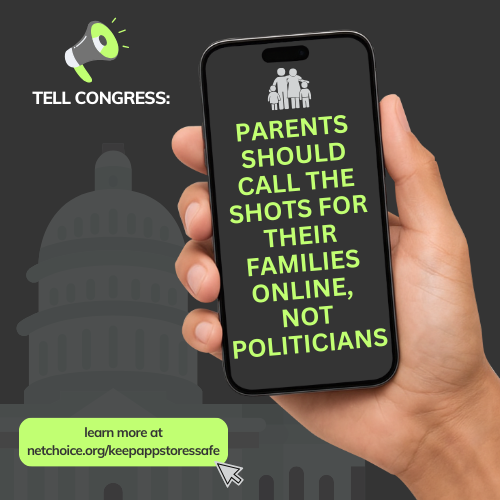Nearly half of all American adults own digital assets according to some studies. One-third of U.S. voters say they’ll weigh candidates’ views on digital assets before voting. Thirty percent of registered voters in swing states say they’re more likely to support a crypto-friendly candidate. The facts are clear: Americans care about digital assets, and rightfully so.
Today, every single online transaction moves between intermediaries, whether that intermediary is a bank, Big Tech, or the government. Digital assets change that. This technology powers peer-to-peer transactions online. Fundamentally, digital assets embody the free market principles our country was built upon: freedom, privacy, and individual sovereignty. Plus, digital assets build the infrastructure for a cheaper, faster, and more efficient financial system than is currently available. As we conduct more and more activity online, providing internet users the choice to conduct transactions directly with each other will unlock an abundance of economic opportunity and prosperity. However, for this to happen the United States must lead in developing this next iteration of the internet so that it is designed with American values.
Like so many issues this election, the contrast between our two presidential candidates’ stances on digital assets couldn’t be clearer. Only one candidate in this race understands what’s at stake and is running on a pro-crypto agenda.
And that candidate is President Donald Trump.
President Joe Biden, on the other hand, has spent the last three years solidifying himself as the anti-crypto, anti-privacy, anti-individual sovereignty, anti-freedom, and anti-free market candidate. A quick look at his record reveals he would rather align himself with the likes of Sen. Elizabeth Warren (D., Ma.) and the administrative state than protect Americans’ financial privacy and allow innovation to flourish.
Look no further than the executive order Biden issued a little more than one year into his presidency placing “urgency on research and development of a potential United States [central bank digital currency] CBDC.” A CBDC is government-controlled, monitored, programmable money that the government can weaponize to choke out politically unpopular activity, like legally purchasing a gun or buying a gas-powered vehicle. If not designed to emulate cash, a CBDC is nothing more than a CCP-style surveillance tool that would give the federal government the ability to surveil and restrict Americans’ financial transactions. Earlier this Congress, the Federal Reserve also gave a presentation to my staff listing the development of a “central bank digital currency” as one of their “key duties.” The Biden administration is clearly itching to trade Americans’ right to financial privacy for a surveillance-style CBDC.
Trump, on the other hand, has taken a strong stance against CBDC’s saying, “As your president, I will never allow the creation of a central bank digital currency. Such a currency would give our federal government absolute control over your money.” And he is exactly right. That is why the House passed my CBDC Anti-Surveillance State Act last month, prohibiting unelected bureaucrats in Washington from issuing this digital financial surveillance tool that would undermine the American way of life.
Joe Biden’s Securities and Exchange Commission (SEC) has also been nothing but adversarial to the digital asset industry. Under Biden’s appointed chair, Gary Gensler, digital asset users have been subjected to regulatory purgatory. The SEC has brought a record 46 enforcement actions against the digital asset industry throughout Gensler’s tenure, many of which have fallen flat in court. Industry leaders have also criticized Gensler’s regulation-by-enforcement approach as inconsistent and confusing, forcing the industry into “regulatory purgatory” where leaders are unable to innovate or operate. And when a bicameral, bipartisan group of Congressional members stepped in to repeal one of Gary Gensler’s illegal rules that would allow digital asset users to have their digital assets safeguarded by bank, Biden vetoed it.
The Biden administration has made it clear they will go to great lengths to stifle digital asset innovation in the United States, including abusing their emergency powers to attack Bitcoin miners and advocating for a 30 percent tax on Bitcoin mining in their 2025 budget. In stark contrast, President Trump is a Bitcoin ally. He met with the country’s top Bitcoin miners last month after which he expressed his support for Bitcoin mining.
While Biden’s administration has attempted to use its regulation-by-enforcement agenda to render decentralized finance and self-custody illegal, Trump is the only candidate in this race who has promised to protect self-custody: “I will ensure that the future of crypto and Bitcoin will be made in the USA, not driven overseas. I will support the right to self-custody to the nation’s 50 million crypto holders,” he said. Giving people power over their own money is not and should not be a partisan issue. But unfortunately, we have an administration that is hell-bent on making it one.
Americans need a leader in the White House who will end Joe Biden and his elite cronies’ war on crypto once and for all, and Trump has proven to be the only man for the job. The future success of digital assets in the United States relies on Trump’s success at the ballot box this November. Until then, the American people can rest assured that House Republicans will do everything we can to hold the Biden administration accountable and counteract their regulation-by-enforcement agenda.
